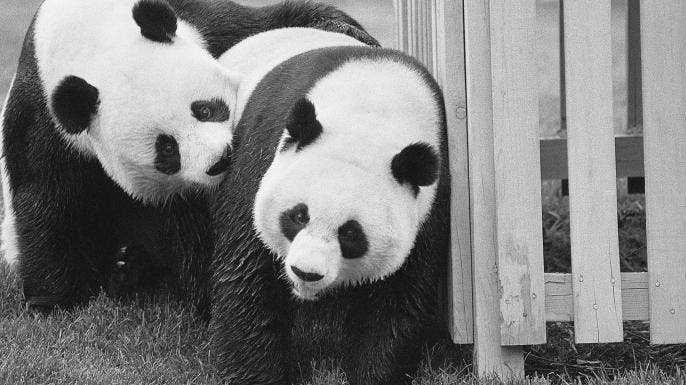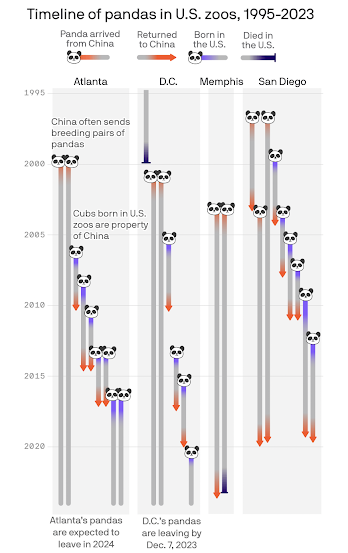Panda Diplomacy 🐼
Panda diplomacy is the practice of gifting giant pandas from China to other nations as a symbol of goodwill and fostering diplomatic relations. These giant, adorable creatures have emerged at the crossroad of China's conservation efforts and its diplomatic strategies. Not only are pandas the national animal of China, but the creatures have transcended national borders to become symbols of biodiversity conservation (think WWF).
A brief history of panda diplomacy:
Panda diplomacy is thought to have started as early as the Tang Dynasty (7th century), when Empress Wu Zeitan sent a pair of bears to Japan. The policy of sending pandas as diplomatic gifts was revived in 1941, when Beijing sent two pandas to the Bronx Zoo as a thank-you gift for support during the Sino-Japanese conflict. In the 1950s, Chairman Mao frequently sent panda bears as gifts to communist allies including North Korea and the Soviet Union.
Two months after Nixon's historic 1972 trip to China, ending 25 years of tension between the two countries, 18-month-old Hsing-Hsing and Ling-Ling were gifted to the United States. American zoos fought fiercely to house the new pandas, with Washington, D.C.'s National Zoo emerging victorious. The pandas' first day on display attracted 20,000 visitors, and the following Sunday over 75,000 people flooded the zoo.
The successful exchange inspired British Prime Minister Edward Heath to ask for a panda loan during a 1974 visit to China. A few weeks later, Chia-Chia and Ching-Ching arrived at the London Zoo.
In 1984, China's panda protocols were amended, requiring an annual fee (about $1 million), and pandas were to be sent out on 10-year loans, no longer gifted. Additionally, all cubs birthed from loaned pandas were to be Chinese citizens, regardless of place of birth.
Hong Kong received two pandas in 2007 as a gift to mark the 10th anniversary of the handover from British rule. These pandas were not loaned but gifted, having political implications that they were a gift between brothers, not to a "separate" place.
After Malaysia Airlines Flight 370 exacerbated tensions between China and Malaysia, the arrival of Feng Yi and Fu Wa in 2014 was seen to heal the relationship after China chastised Malaysia for the disaster.
After resisting offers for pandas for nearly three years, after a change in government in 2008, Taiwan accepted Tuan Tuan and Yuan Yuan, two four-year-old pandas who became instant celebrities.
Giant Pandas Are Leaving the U.S. :(
Pandas have lived in U.S. zoos for five decades now, though next year could mark the end of pandas residing in the States. In December, Washington, D.C.'s National Zoo said goodbye to three pandas. Atlanta's two panda cubs are scheduled to leave in early 2024, and their parents will follow shortly after.
Vocabulary:
熊猫 - Xióngmāo, panda
熊猫外交 - Xióngmāo wàijiāo, panda diplomacy
动物园 - Dòngwùyuán, zoo
自然保护 - Zìrán bǎohù, conservation



Comments
Post a Comment